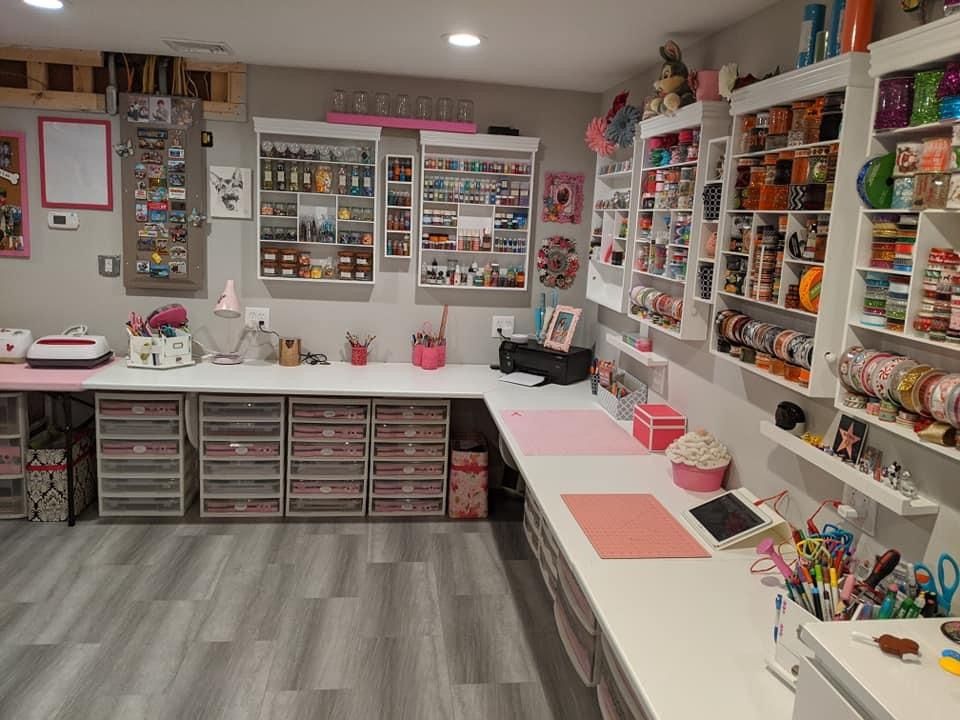Finding Your Creative Sanctuary: Planning Your Craft Room
For crafters, a dedicated craft room isn’t just a room; it’s a sanctuary, a creative haven where inspiration flows freely. It’s a space where imagination takes shape, where messy masterpieces are born, and where the joy of creation reigns supreme. But designing the perfect craft room can feel overwhelming. Fear not, fellow crafters! This comprehensive guide will walk you through every step, from initial planning to the final flourish, ensuring you create a space that truly reflects your unique crafting style and needs.
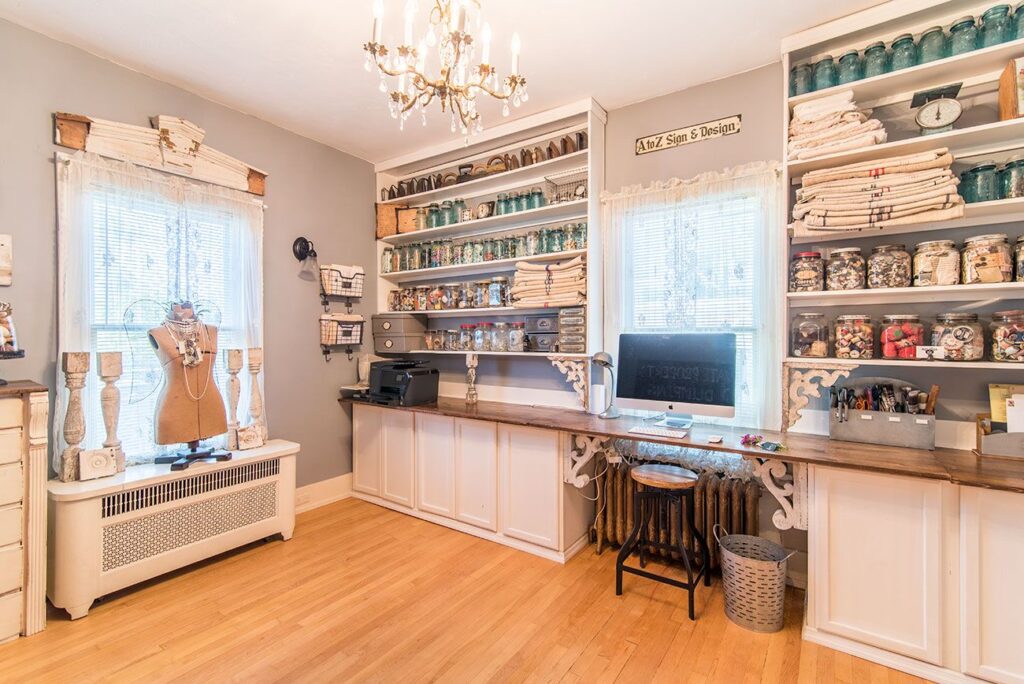
Assessing Your Needs and Space
Before diving into paint swatches and furniture catalogs, take a moment to honestly assess your crafting habits. What types of crafts do you enjoy? Do you primarily work with fabric, paper, jewelry, or a combination of mediums? Understanding your craft repertoire is crucial for optimizing your space. Consider the tools and materials you use most frequently. Do you need ample counter space for painting, or extensive storage for fabric scraps? A clear understanding of your needs will guide your design choices.
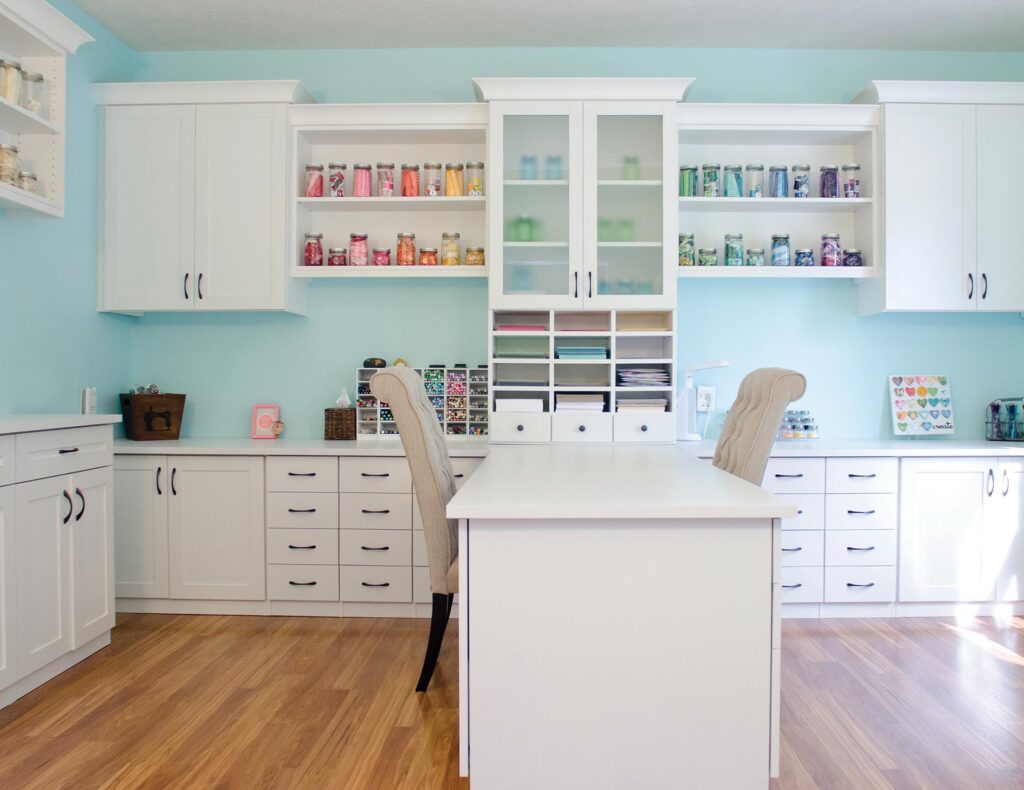
Next, take accurate measurements of your designated craft room. Sketch a floor plan, noting windows, doors, electrical outlets, and any existing features. This will help you visualize furniture placement and ensure efficient workflow. Don’t forget to factor in the space you’ll need for movement. You don’t want to feel cramped while working on your latest project!
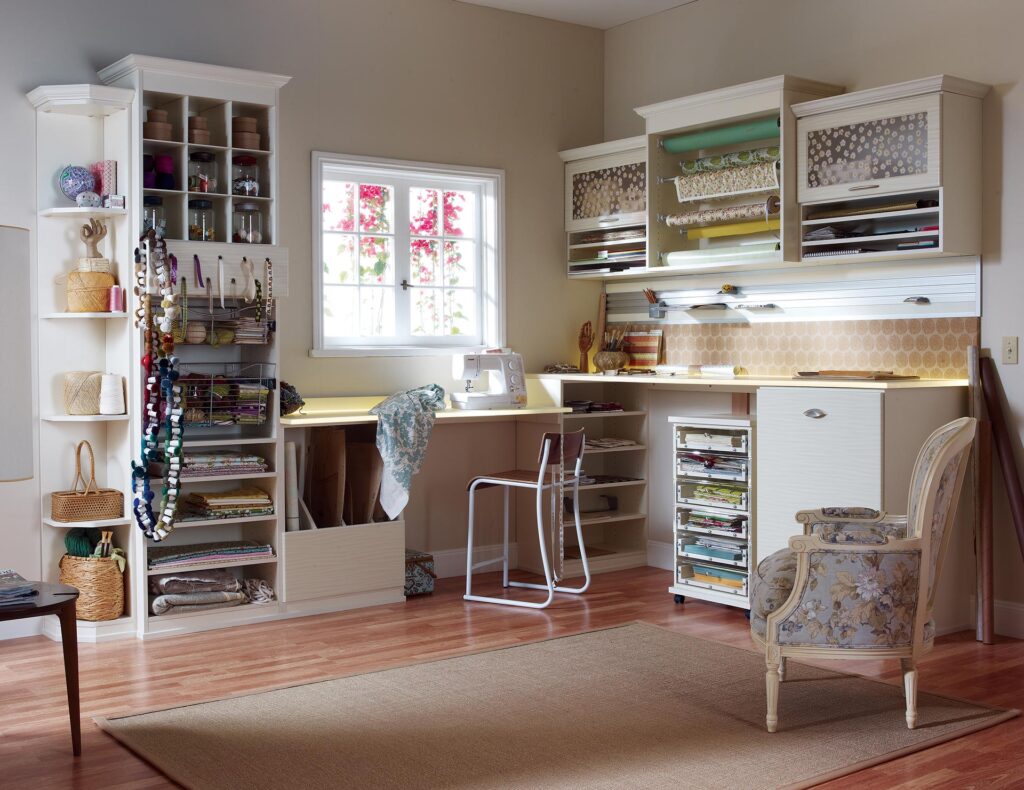
Designing for Efficiency and Comfort
A well-designed craft room prioritizes both efficiency and comfort. Think about the flow of your crafting process. Where will you store your supplies? Where will you work on projects? How will you manage your waste? A well-thought-out layout minimizes wasted steps and maximizes productivity.
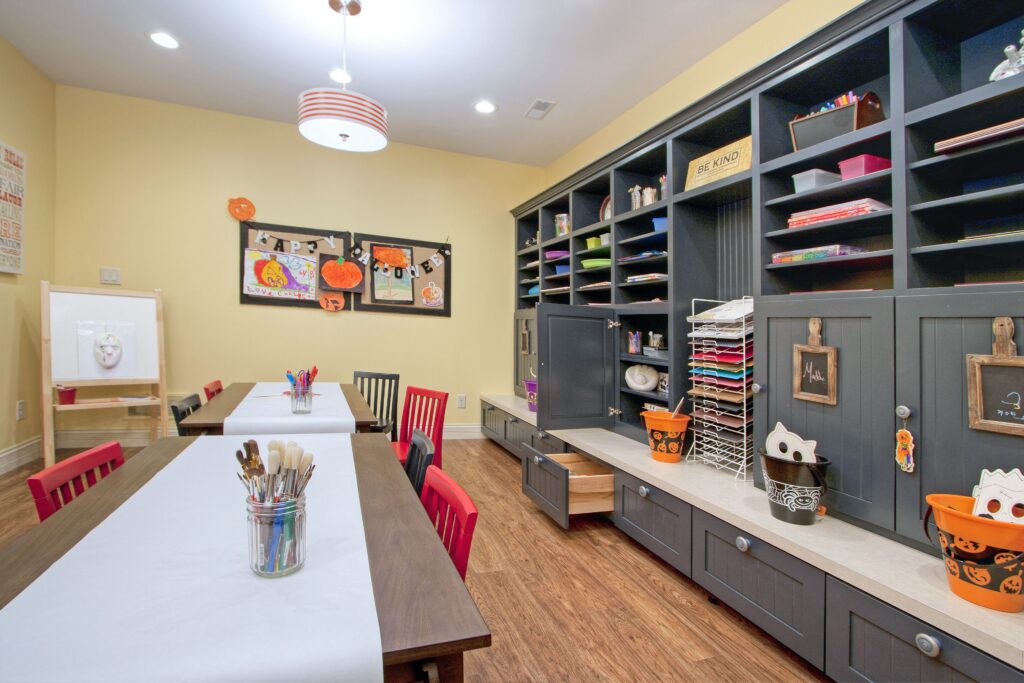
Storage Solutions: Keeping it Organized
Storage is the cornerstone of a functional craft room. Lack of organization can lead to frustration and stifle creativity. Invest in a variety of storage solutions that cater to your specific needs. Consider:
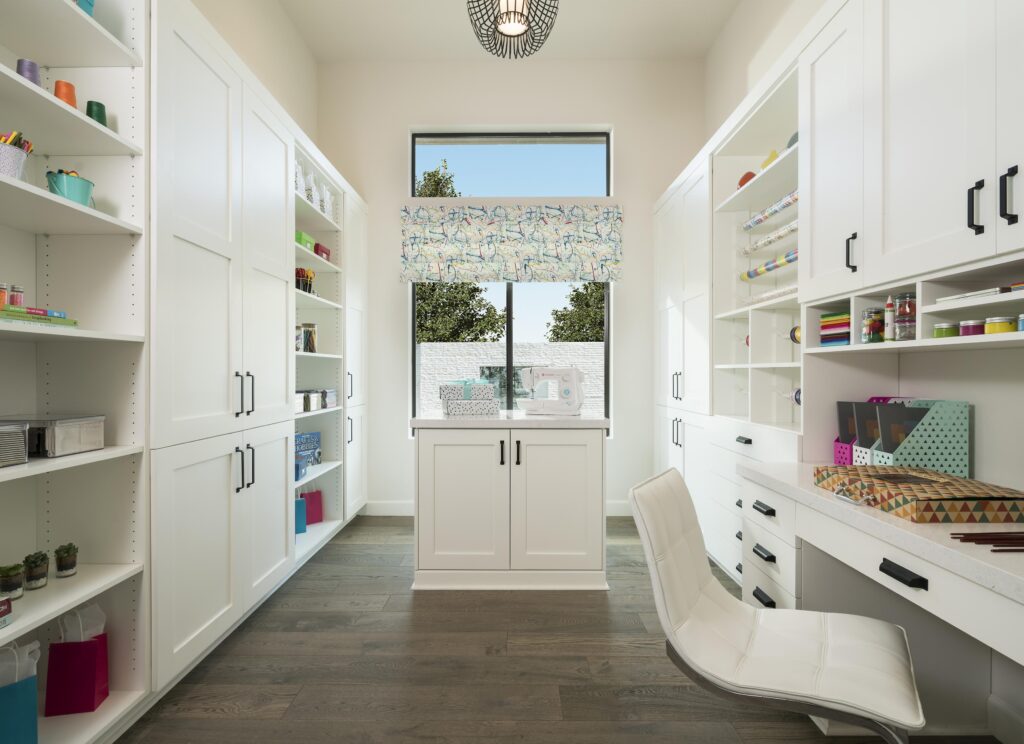
- Shelving: Wall-mounted shelves maximize vertical space and keep frequently used supplies within easy reach.
- Drawers: Perfect for storing smaller items like beads, buttons, and embellishments, keeping them neat and tidy.
- Cabinets: Ideal for larger items or those you don’t use as frequently.
- Rolling Carts: Provide mobile storage, allowing you to easily transport supplies to different work areas.
- Clear Containers: Makes it easy to see the contents, preventing frustration from searching for the right tools or materials.
Remember to label everything! Clear labeling saves time and prevents the inevitable frustration of hunting for that elusive piece of ribbon.

Work Surface Wonders: Choosing the Right Table
Your work surface is the heart of your craft room. Choose a table that’s large enough to accommodate your projects and tools comfortably. Consider the height – you want to be able to work comfortably without straining your back or neck. A spacious, well-lit work area fosters creativity and reduces fatigue. If you have multiple crafting hobbies, perhaps consider a multi-functional table with adjustable height and features that can adapt to various crafting needs.

Lighting Up Your Creativity: Illumination is Key
Adequate lighting is often overlooked but is crucial for a productive craft room. Poor lighting can strain your eyes and make it difficult to see fine details. A layered lighting approach is best:
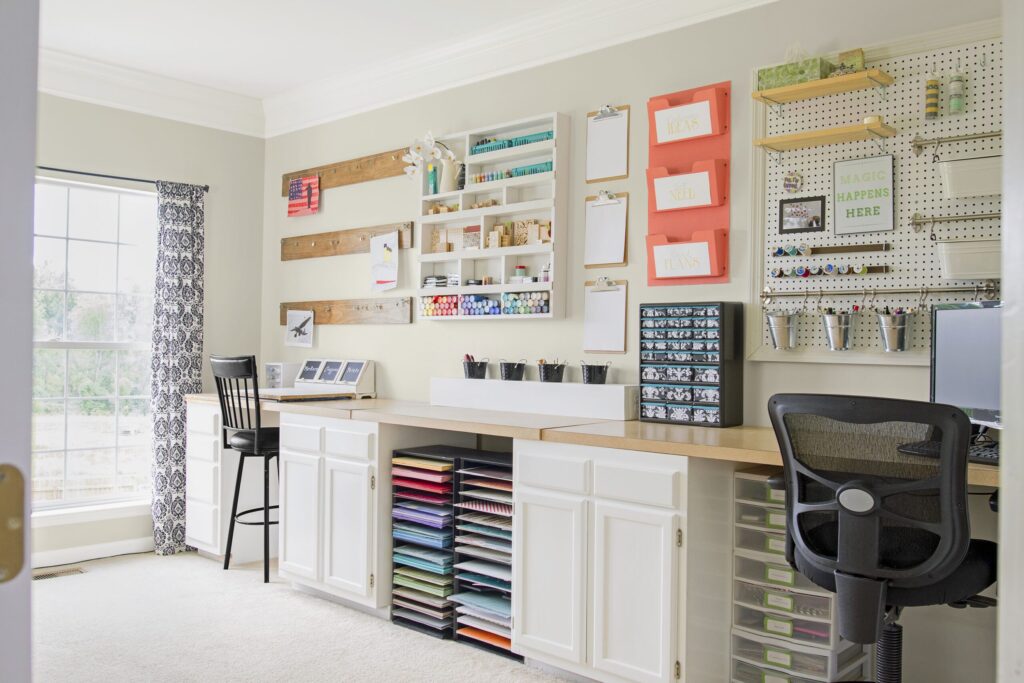
- Ambient Lighting: Provides overall illumination for the room.
- Task Lighting: Focuses light directly on your work area, reducing shadows and eye strain. Consider a desk lamp, floor lamp, or even a pendant light directly over your work table.
- Accent Lighting: Adds a touch of personality and highlights specific features of the room.
Natural light is also invaluable; position your work area near a window if possible. But remember to use curtains or blinds to control glare.
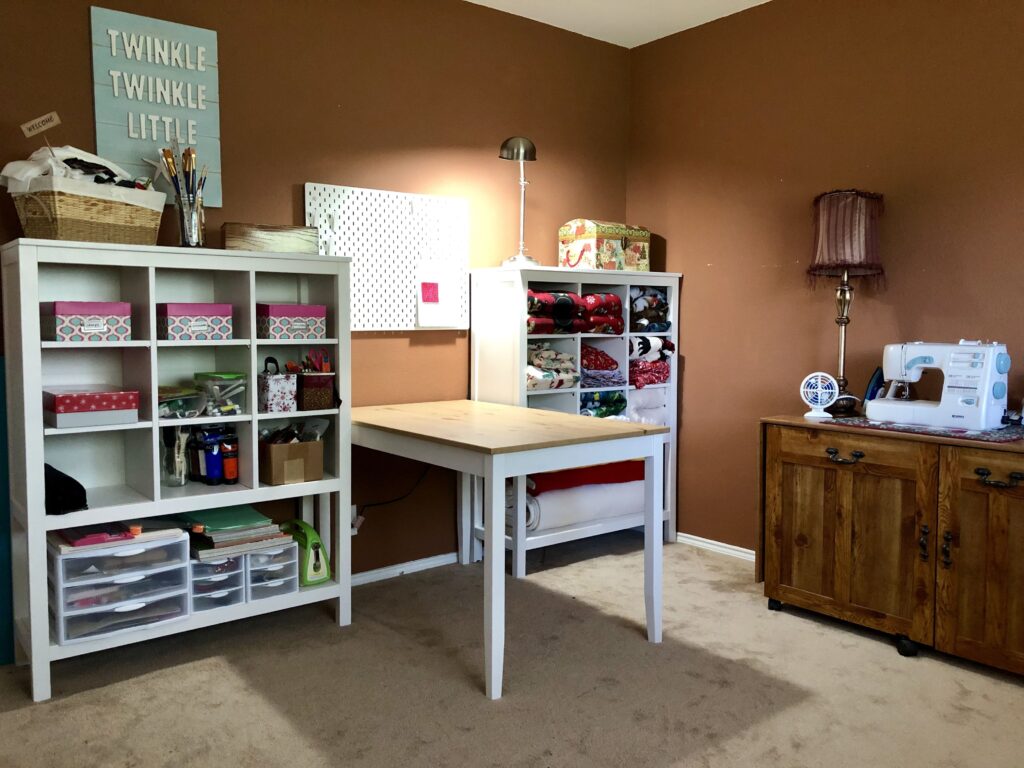
Personalizing Your Space: Adding a Touch of You
Your craft room should be a reflection of your personality and style. Don’t be afraid to add personal touches that make you feel inspired and happy. This might include:
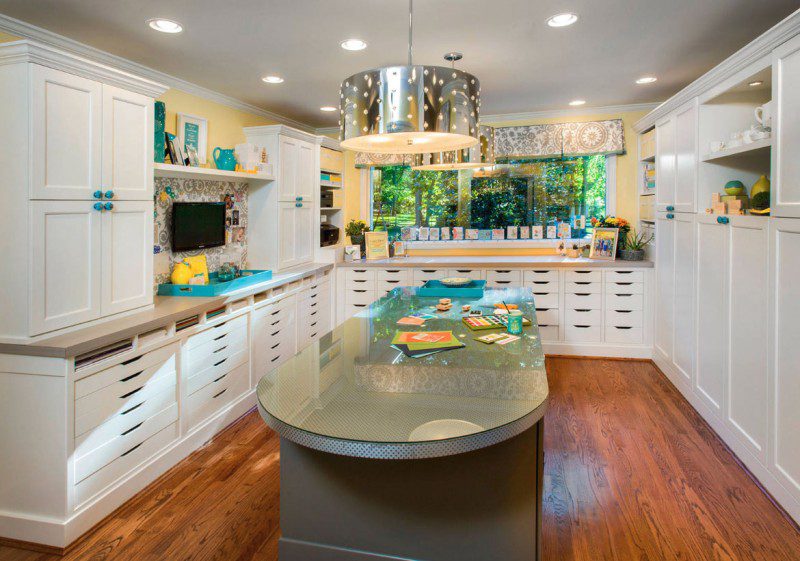
- Inspirational artwork or photos
- Plants to add life and freshness
- Comfortable seating
- Color schemes that reflect your favorite palettes
- Personalized storage solutions
Remember, this is your creative sanctuary. Make it a space you love to spend time in. Let your personality shine!
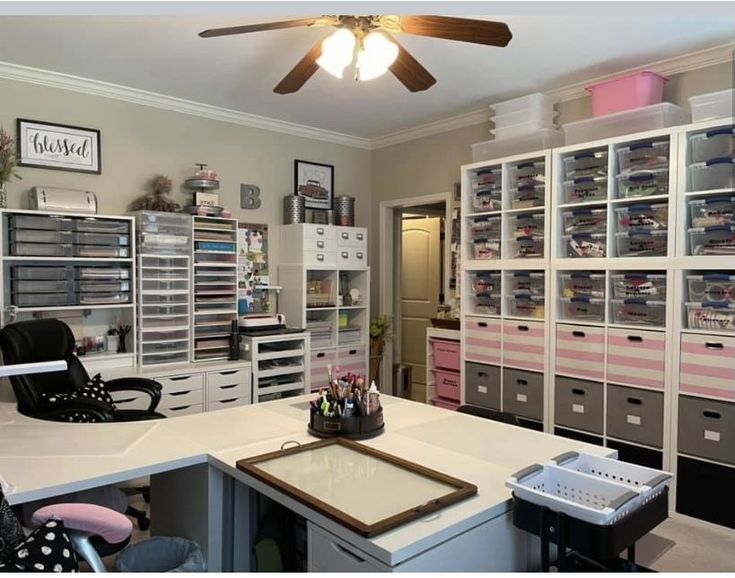
Ergonomics for Comfort and Health
Spending long hours crafting can take a toll on your body. Prioritize ergonomics to prevent pain and injury. Invest in an ergonomic chair that provides proper back support. Ensure your work surface is at the correct height, and consider using a footrest if needed. Take regular breaks to stretch and move around. Your physical well-being is as important as your creative output!
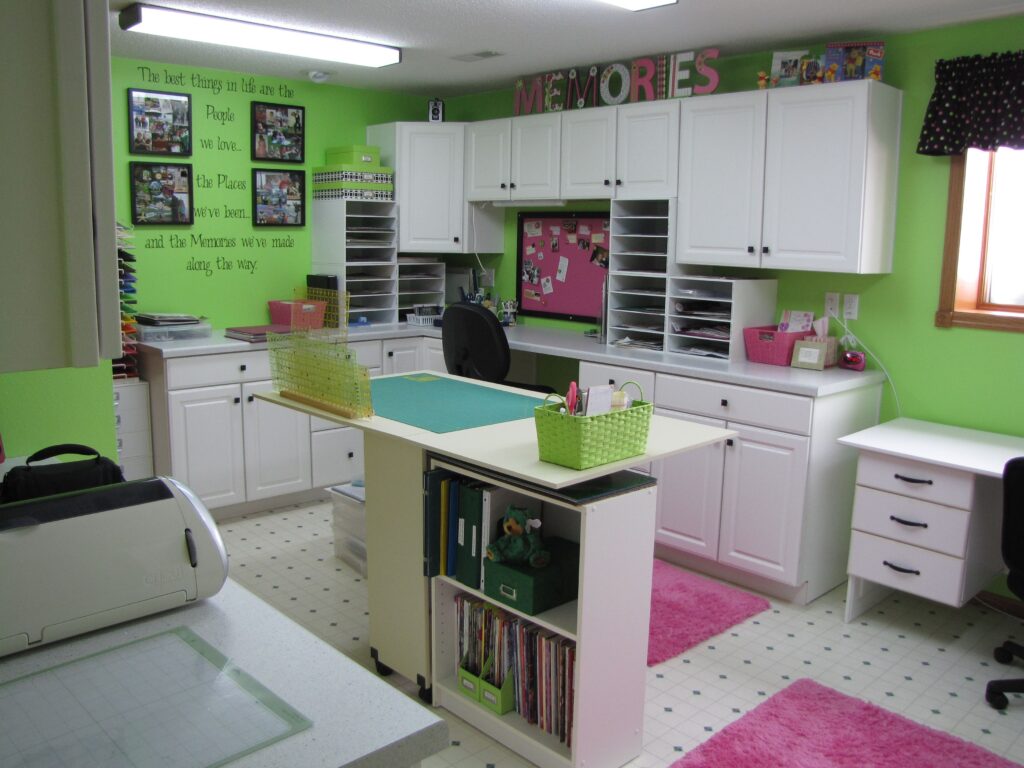
Staying Inspired: Maintaining Your Creative Flow
Keep your craft room organized to avoid feeling overwhelmed. Regularly declutter and purge materials you no longer use. Surround yourself with inspirational items that spark your creativity. Consider creating a mood board or inspiration wall to keep your creative juices flowing.
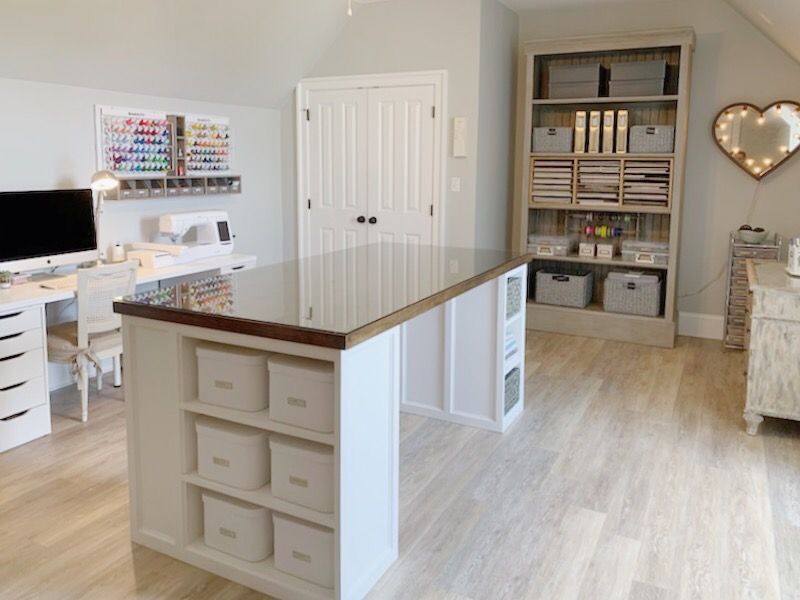
The Craft Room Budget: Balancing Value and Quality
Crafting can be expensive! Create a realistic budget for your craft room project. Prioritize essential items, such as a sturdy work table and adequate storage solutions. Look for affordable options without compromising on quality. You can gradually add more items over time as your budget allows.
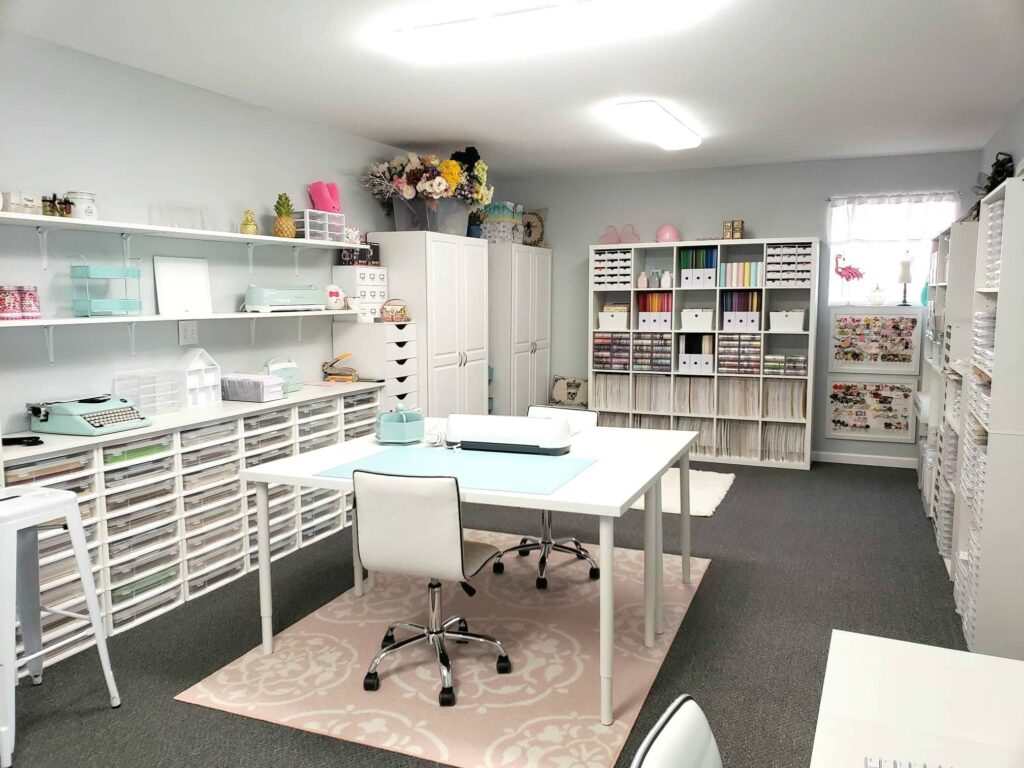
Conclusion: Your Creative Journey Begins Here
Designing your dream craft room is an exciting journey. By following these tips, you can create a space that’s both functional and inspiring. Remember to prioritize your needs, invest in quality storage solutions, and personalize your space to reflect your unique style. Most importantly, have fun and enjoy the process of creating your own creative sanctuary. Happy crafting!
